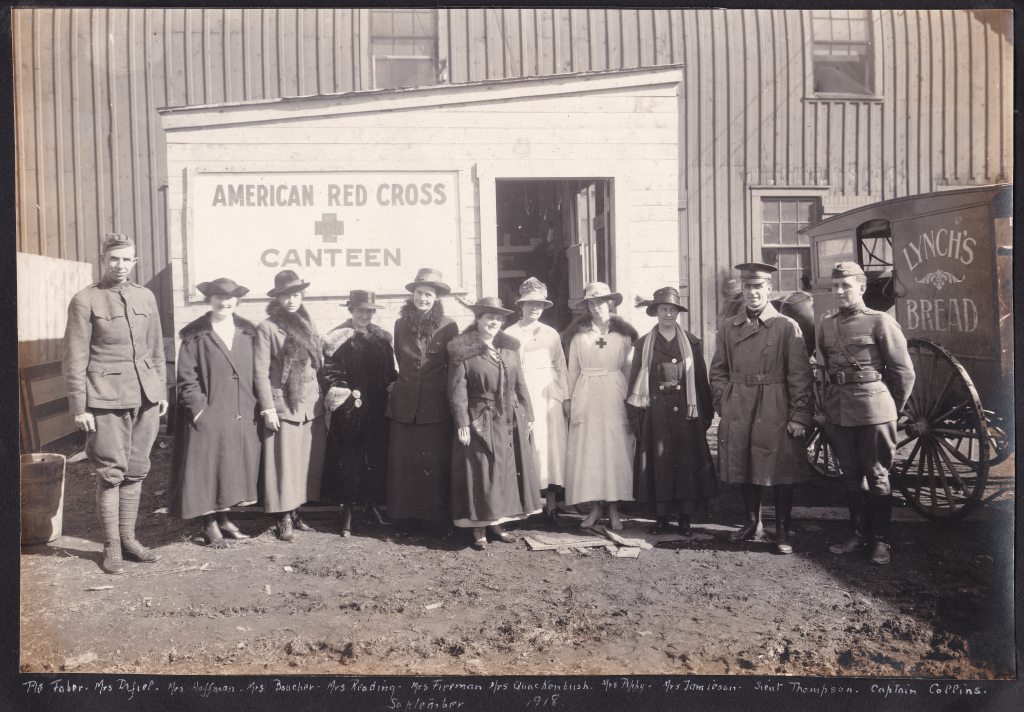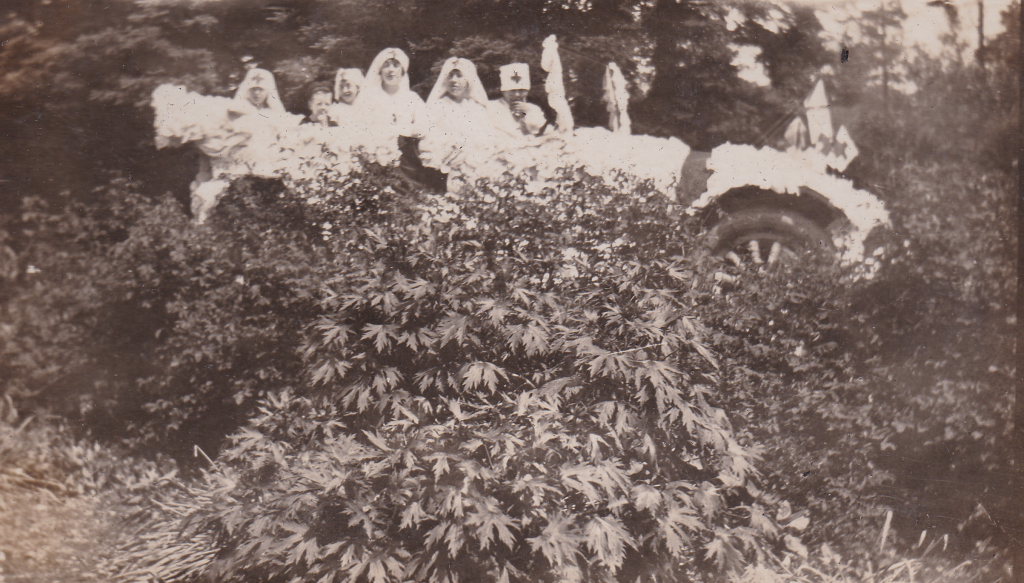Volunteering During World War I
Susan Freeman, her daughters Harriet and Mary, as well as volunteers from the community helped run the American Red Cross canteen during this period. Like many women, the Freemans contributed to the war effort by volunteering their time to support services offered to soldiers, sailors and merchant seamen stationed in ports or returning home after serving abroad. Susan Freeman was in charge of the American Red Cross in Sydney. Services like the American Red Cross canteen started in the last years of the war as more and more soldiers were coming through Sydney on their way to and from the war.
Canteens offered wholesome alternatives to taverns for sailors and soldiers. They offered tea, coffee, newspapers and cards. It was also another way that women could contribute to the war effort. Although canteens for soldiers operated in Canada, it was not a common activity for the Canadian Red Cross.
After the United States joined World War I in 1917, there was a great deal of congestion at railroad junctions that made it very difficult for a soldier to receive adequate meals before they boarded and disembarked. In response, the American Red Cross began offering refreshments to the troops at railroad junctions at home and overseas. By the end of 1917, the American Red Cross offered 85 canteen depots, 15 train restaurants and 430 smaller canteens. As the head of the American Red Cross in Sydney, Susan Freeman would have been aware of the success and popularity of canteens throughout the United States and Europe and thus motivated to open one in Sydney.
In Canada, women’s organizations were instrumental in raising funds and gathering supplies for sick and wounded soldiers abroad. They also made important contributions to support services for sailors, soldiers and merchant seamen returning from overseas. For instance, women volunteering with their local chapters of Canadian Red Cross put a great deal of time and effort into organizing local women to knit comfort socks and roll bandages for sick and wounded soldiers overseas. They also packed food parcels for prisoners of war and near the end of the War they produced jams and other canned goods for invalid soldiers overseas.

